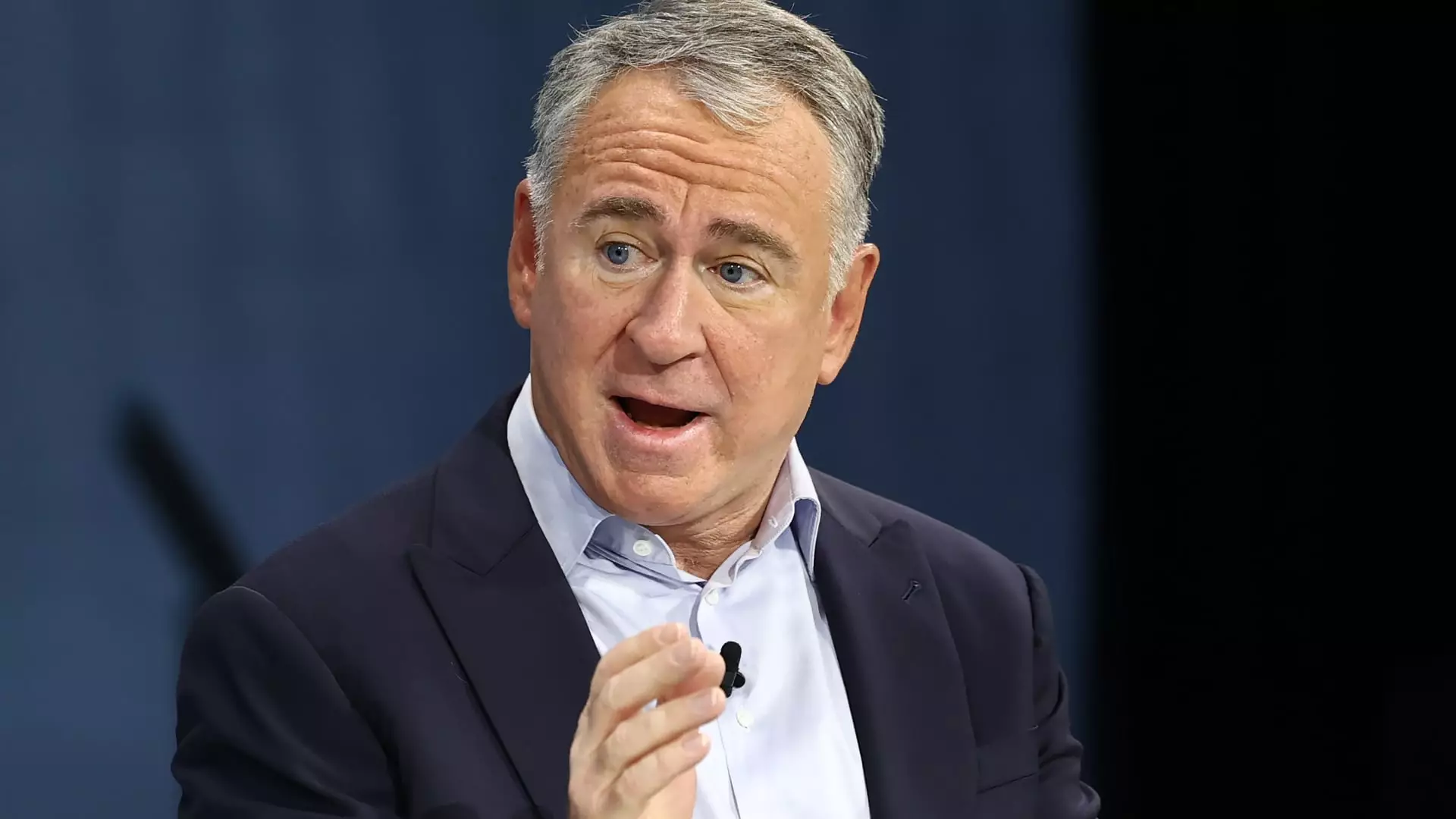Ken Griffin, CEO of Citadel, recently voiced his concerns about the detrimental effects of President Donald Trump’s confrontational trade policies during the UBS Financial Services Conference in Key Biscayne, Florida. Griffin’s statement is significant, particularly given his past support for Trump, highlighting the gravity of the current trade climate. By suggesting that the existing bombastic approach to negotiating trade agreements is causing long-lasting damage, Griffin underscores a critical dilemma faced by American businesses: uncertainty in an unpredictable economic landscape.
Griffin pointedly indicated that the combative rhetoric is not merely a matter of style; it affects the fundamental trust between trading nations. When U.S. policies appear erratic or hostile, it shakes the confidence of CEOs and policymakers globally. This lack of trust can lead to a drastic reevaluation of business decisions. For instance, Griffin articulated that the economic environment shaped by such rhetoric creates a challenging atmosphere for those planning long-term investments.
Recent measures taken by the Trump administration, such as imposing substantial tariffs on steel and aluminum imports, exemplify the shifting dynamics of international trade. Griffin highlighted how these tariffs might affect multinational corporations’ ability to plan for the future. The unpredictability brought about by such trade policies poses a threat to prospective investments that require significant lead time, potentially stifling growth and innovation.
Multinational companies thrive on stable and predictable trade environments that allow them to gauge the risks associated with foreign investments. Griffin warned that the current punitive measures against countries like China and the temporary tariffs on goods from Canada and Mexico could lead to long-term repercussions. If businesses perceive the U.S. as an unreliable trading partner, they may seek to establish operations in jurisdictions with more stable trade frameworks, diminishing the competitive edge of American companies.
Griffin’s forewarning does not merely concern tariffs but extends to the concept of crony capitalism, which he associates with current trade policies. This economic system is characterized by the tight-knit relationships between the government and business leaders, potentially creating an uneven playing field. Such dynamics may lead to favoritism, undermining fair competition—an essential tenet for a free-market economy.
Investors might start to question whether their capital will yield a fair return if the operating landscape continues to be shaped by government favoritism or hostile trade relations. The fear of such cronyism can deter investment, not just in terms of capital allocation but also in fostering innovative business practices. A thriving economy relies on a level playing field where competition flourishes based on merit, not influence or governmental intervention.
As Ken Griffin’s insights suggest, the future of American trade relations hinges on the ability to restore trust between nations and within the business community. His critique of Trump’s approach serves as a reminder that the language of negotiation carries weight far beyond mere words. To foster a stable economic environment conducive to long-term growth, there is an urgent need for a more pragmatic and nuanced approach to trade policy—one that prioritizes collaboration over confrontation. The stakes are high, and the consequences of maintaining a combative stance may echo for years to come.

